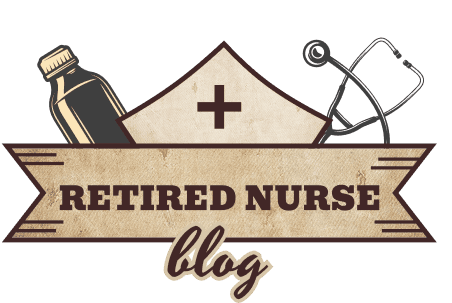On Tuesday afternoon, Mikenzie Buchanan scooped up an armful of clipboards piled behind the front desk at A Woman’s Choice, an abortion clinic here; it was almost too many to hold. On each clipboard, behind a blue cover to protect personal information, were documents and charts for patients who had visited the clinic to receive a medication abortion that day.
“Starting tomorrow, I will be making a lot less of these,” said Buchanan, who has been working at the front desk for a few months.
Over the past couple of days, the Jacksonville clinic had been seeing two to four times as many patients as it typically would. But today, May 1, a significant shift in Florida’s abortion law takes effect, cutting the 15-week ban down to a six-week ban – a time before many women know they’re pregnant.
The new restrictions will reverberate through the state and the broader region, as Florida has become a key abortion access point for the South in the years since the US Supreme Court’s Dobbs decision revoked the federal right to an abortion.
Buchanan is often the first person people see when they arrive for their appointments. Some patients who come in aren’t familiar with the new six-week ban, but many are worried and stressed about “beating the clock,” she said. “I feel a sense of urgency, too. I don’t want to add any stress to it. But behind the scenes, we’re definitely making sure that they can be seen as quickly as possible and get where they need to go.”
Candace, a Jacksonville resident and 36-year-old mother of two, learned about Florida’s six-week ban when she called A Woman’s Choice to make an appointment for an abortion. She was within that limit when she had her appointment on Tuesday but worries about what it means for the future, including for her teenage daughter.
“I feel relieved to be able to get in, and I feel lucky that, you know, right now, I do have a voice, and I have a right over my own body. But waking up tomorrow — it’s devastating. I know my daughter and myself are waking up tomorrow with less rights than we do today,” she said. The new time limit raises fear in Candace, who has experienced high-risk pregnancies and traumatic births, including the death of a newborn. Now, she worries that she’s at even greater risk since she’s older than 35.
“I’m terrified,” she said. “My life matters.”
Candace said she would have preferred to get a surgical abortion but opted for medication abortion to leave space for the many women who may need to travel from other states.
Last year, nearly 8,000 people traveled from out of state to receive an abortion in Florida, according to data from the state health department – that’s nearly a tenth of all abortions that happened in the state and three times more than five years ago. After the Dobbs decision, nine of the 16 states in the South banned abortion. Florida now joins Georgia and South Carolina with a six-week ban. This leaves just three states in this US Census region — Delaware, Maryland and Virginia — where abortion remains legal past the first trimester and North Carolina with a 12-week limit.
The crowded lots and farther parking distances have made their role extra important, especially as anti-abortion activism has also ramped up, said Ryan Moran, a clinic escort who has been volunteering for years.
“It’s a struggle to try to cluster all these appointments before May 1 to get people the care they need,” he said.
On Wednesday, at least a half-dozen anti-abortion activists had stationed themselves behind the Jacksonville clinic, with regular trips up and down the parking lot, making beelines for parking cars that could have patients in them.
Florida’s new six-week ban is a “landmark for the pro-life movement and for women,” said one person who asked to be identified as Wayne. “Today, we see this as a victory for all women. It’s not a victory for us in any way.”
By 11 a.m. Tuesday, the last day when abortions up to 15 weeks were allowed in Florida, all of the patients who had appointments for the day at A Woman’s Choice in Jacksonville were checked in, and the parking lot was full once again, with a half-dozen clinic escorts with big rainbow umbrellas and a sheriff’s patrol car scattered throughout. The parking lot emptied a little slower than usual throughout the afternoon, as the busy day had the clinic running a few hours behind schedule.
Florida law requires that people seeking an abortion have an in-person visit for an ultrasound, lab work and meeting with a physician at least 24 hours before their appointment to receive the procedure or medication. Sometimes, patients wait weeks to come back for their second appointment – in some cases, it’s so long that the lab work expires and the process has to start over again. But over the past couple of days, with the new ban looming, more patients showed up for their second appointments to be sure they made it in time.
The last day before the new ban took effect may have seemed like business as usual. Up and down the clinic’s bright yellow hallways dotted with inspirational quotes, patients waited behind closed doors for their appointments. They met medical staff in exam rooms or sat in leather reclining chairs with heating pads to recover.
But the work to get to that point has been months in the making.
The Florida Supreme Court issued the decision that paved the way for the six-week ban on April 1, just 30 days before it took effect. A Woman’s Choice often schedules appointments a few weeks out, so alternate plans had to be made for some patients almost as soon as the decision was made public.
All of that coordination happens in the call center across the parking lot from the clinic, where a few operators answer a near-constant stream of calls from people trying to understand their options and schedule appointments across the five clinics that A Woman’s Choice has: the Jacksonville location; three in North Carolina, where abortion is legal through 12 weeks; and one in Virginia, where there are no restrictions.
Having this network of clinics in locations with different laws lets workers in the call center make real-time adjustments to help patients find the best option for their situation, said Gabby Long, the hotline director for A Woman’s Choice.
“Having that direct line makes it easier on patients,” she said. “When you go to a place you kind of already know, you don’t have to say, ‘Oh, I don’t know where to call. I don’t know where to go. What is my next move?’”
Communicating with patients about the new ban in Florida has been disheartening, but managing what it means for patients and how they might feel is nothing new, Long said.
“I feel like we were more prepared for this just because we’ve seen so much change,” she said. “My biggest thing was my girls in the call center – it’s just humanity. Just be mindful of patients. Put yourself in their shoes. Because we know that our patients are stressed. We know they’re scared. They just want to have access to basic health care. But there are always options for our patients.”
Sometimes, that option might mean coordinating care for patients at the Virginia location and helping them access abortion funds to help them make the 500-mile trip from Jacksonville.
The Virginia clinic just opened in February; it’s so new that the address, just a few miles across the state’s southernmost border, isn’t yet included on much of the printed material that can be found around the offices.
But opening that clinic was in direct anticipation of stricter laws in Florida and planning for it started “as soon as we knew [state law] was being challenged,” said Terry Sallas Merritt, an executive team member at A Woman’s Choice.
On Wednesday, when the new ban took effect, three patients who had their initial consultation at the Jacksonville location of A Woman’s Choice learned that they were past the new gestational limit in the state and would have to travel out of state to get an abortion.
“That’s the majority of our patients. They don’t know the exact time they got pregnant,” Flynn said. “If they weren’t previously [aware of the new ban], they are now.”
The battle over abortion in Florida continues, as it’s one of at least three states that have an abortion-related measure on the November ballot.
But for now, the focus remains on individual patients.
“We are going to continue to stay open,” Flynn said. “The biggest hurdle right now is just to get patients in the door that need an abortion, get their consent process started and then help them navigate the way to the option they choose.”

